This article was co-authored by Navid Malakouti, MD, FAAD. Dr. Navid Malakouti is a Board Certified Dermatologist specializing in cosmetic dermatology, dermatologic surgery, and medical dermatology. He treats patients of all ages for conditions like acne, rosacea, psoriasis, skin cancer, botox, fillers, lasers, and chemical peel. Dr. Malakouti is a Diplomate of the American Board of Dermatology, Fellow of American Academy of Dermatology, American Society for Dermatologic Surgery, and American Society for Laser Medicine and Surgery, and a member of the Skin of Color Society. He holds a BS in Biochemistry and Cell Biology from The University of California, San Diego and an MD from The Virginia Commonwealth University School of Medicine. He completed his Dermatology residency in Washington D.C. at Howard University, VA Medical Center, Children's National Hospital, and the National Institutes of Health.
There are 7 references cited in this article, which can be found at the bottom of the page.
This article has been viewed 78,360 times.
When a wound gets itchy, it often means that it has begun the healing process. Despite the fact that this is good news, it can still be a frustrating thing to experience. When a wound begin to heal, histamine is produced, which can make you feel itchy. Luckily, you can control this itchiness through self-care methods and medications. A constantly itchy and painful wound means that you have an infected wound on your hands. To confirm this, scroll down to the last step of the last section.
Steps
Using Self-Care Methods
-
1Apply a cold compress to relieve itchiness. The cold temperature of the ice can temporarily numb your skin so that you don’t feel the itchiness anymore. The compress also narrows the blood vessels in the surrounding area, which can also help to limit the itchiness.[1] [2]
- Apply a cold compress to the area for 15 to 20 minutes. Do not exceed 20 minutes, or the cold temperature could cause skin damage. If you do not have a cold compress, wrap ice in a hand towel; do not put the ice directly on your skin.
-
2Take an oatmeal bath. Oatmeal can help to soothe any itchiness caused by a wound. You can generally purchase oatmeal-based bath products at your local pharmacy. Oatmeal contains colloidal protein and high mucilaginous content that can help to keep your skin from drying out and becoming itchy.[3]
- Soak in an oatmeal bath for 15 to 20 minutes. Rinse off using warm water without soap, as the soap will remove the essential minerals from your skin.
Advertisement -
3Apply calamine cream. This medicated anti-itch cream is used for the temporary relief of itching. However, do not apply it to broken skin, as it will only cause further irritation. You can purchase this cream over-the-counter at your local pharmacy.[4]
- You can apply this cream every six to eight hours, or as necessary.
Using Medications to the Relieve the Itch
-
1Apply a medicated cream. Neosporin is an antibacterial and anti-itch cream that is used to treat itchy wounds. The cream inhibits the production of protein in bacteria that can result in cell death and cause itchiness.
- You can apply medicated creams three times a day, or as directed by a doctor.
-
2Use a 1% hydrocortisone cream. This cream is used for the relief of inflamed and itchy skin. It acts by stabilizing leukotriene lysosomal membranes that prevent the release of acid hydrolyses (things that make you feel itchy).
- You can apply this cream every 8 to 12 hours to keep your skin from feeling itchy.
-
3Take over-the-counter antihistamines. These medications release antihistamines, which inhibit the action of histamines. Histamines cause you to feel itchy. Some commonly used antihistamines include:
- Diphenhydramine (Benadryl). It is available in 25 mg and 50 mg pills but you should not take more than 300 mg in a day. Be careful, as benadryl can cause drowsiness.[5]
- Loratadine (Claritin). It is available in 10 mg tablets and can be taken once a day. This antihistamine generally does not cause drowsiness, but you should still look for the ‘non-drowsy’ banner when purchasing these antihistamines.[6]
Caring for Your Skin
-
1
-
2Trim your nails. You may unconsciously scratch at the wound during the night. To limit the amount of damage this unconscious scratching can do, trim your nails so they are as short as possible.
-
3Avoid using harsh soaps and detergent. Using products with strong chemicals can delay wound healing as the soap may alter the skin’s production of new cells and tissues.
- Mild soap products are recommended such as Dove, Neutrogena, and Cetaphil; these products are mild cleansers and good for the skin.
-
4Always moisturize your skin. When you moisturize, you can prevent dryness, which can limit how much itchiness you feel. Dry skin is more prone to breakdown and irritation than well moisturized skin is.[9]
- Moisturize your skin after taking a bath or washing your hands to help your skin stay silky smooth.
- Use a 100% petroleum jelly product to create a moisture barrier for your skin.[10]
-
5Know when to call a doctor. If the itchiness you are experiencing has become constant and more severe, your wound may be infected. If this is the case, you should give your doctor a call. Symptoms of an infected wound include[11] :
- Inflammation around the sides of the scabs.
- Increasing pain.
- Abnormal wound discharges with an unpleasant odor.
- Fever
References
- ↑ Navid Malakouti, MD, FAAD. Board Certified Dermatologist. Expert Interview. 19 July 2021.
- ↑ http://www.nlm.nih.gov/medlineplus/ency/article/003217.htm
- ↑ http://www.webmd.com/drugs/2/drug-3854/oatmeal-bath-topical/details
- ↑ http://www.netdoctor.co.uk/travel-health/medicines/calamine-cream-and-lotion.html
- ↑ http://www.drugs.com/ppa/diphenhydramine-hydrochloride.html
- ↑ http://www.rxlist.com/claritin-drug.htm
- ↑ Navid Malakouti, MD, FAAD. Board Certified Dermatologist. Expert Interview. 19 July 2021.
- ↑ http://www.webmd.com/allergies/itch-relief-11/cuts-scrapes?page=2
- ↑ Navid Malakouti, MD, FAAD. Board Certified Dermatologist. Expert Interview. 19 July 2021.
- ↑ Navid Malakouti, MD, FAAD. Board Certified Dermatologist. Expert Interview. 19 July 2021.
- ↑ http://www.webmd.com/allergies/itch-relief-11/cuts-scrapes?page=2
About This Article
Itching normally signals that your wound has started to heal, but you can reduce your discomfort with a few home remedies. Apply a bag of frozen vegetables or ice wrapped in a towel to your itchy skin for 15 minutes a few times a day. This will help to numb the area and relieve your itchiness. You can also take an oatmeal bath to help keep your skin from drying out and getting itchy. Alternatively, apply an anti-itch cream or hydrocortisone cream to help reduce inflammation. You should also moisturize your skin every day to keep it hydrated and limit your itchiness. If you experience increased pain, abnormal discharge from your wound, or fever, call your doctor for help. For more tips, including how to reduce itchiness with antihistamines, read on!
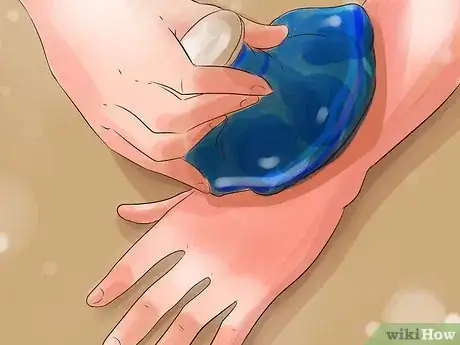

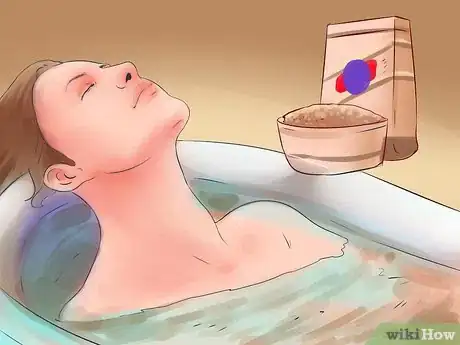
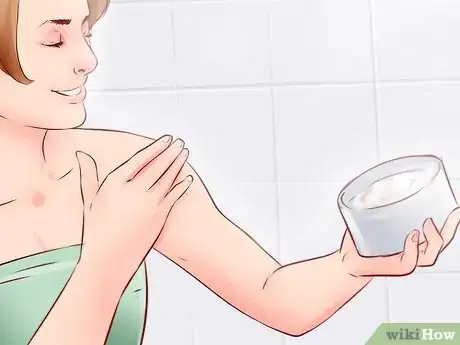
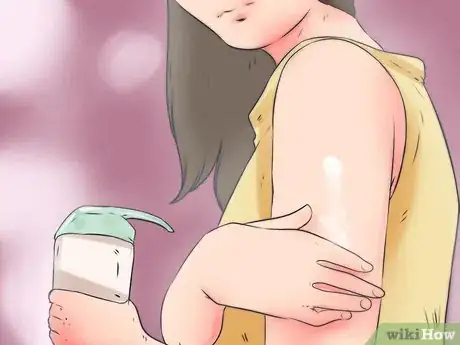
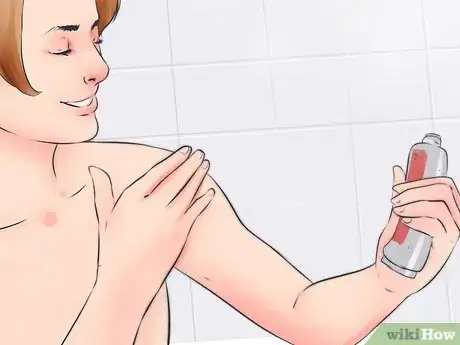
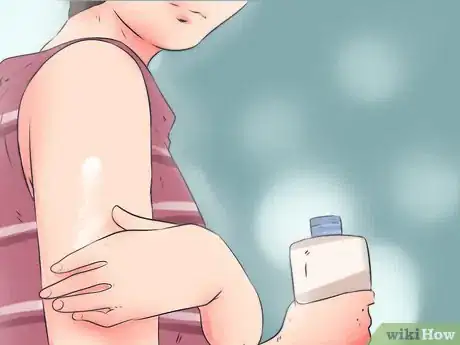
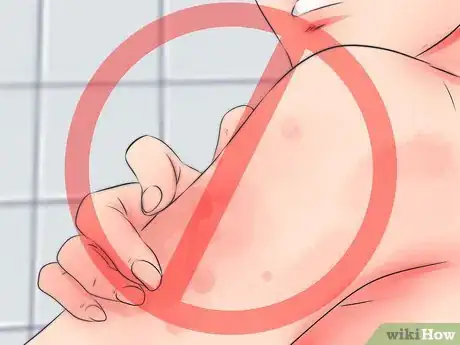
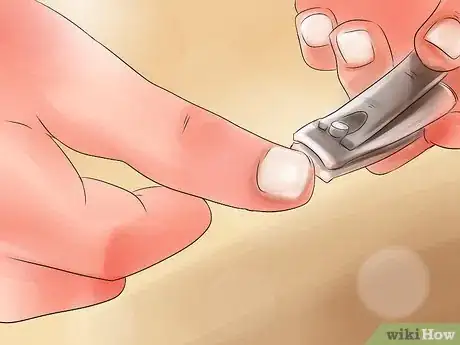
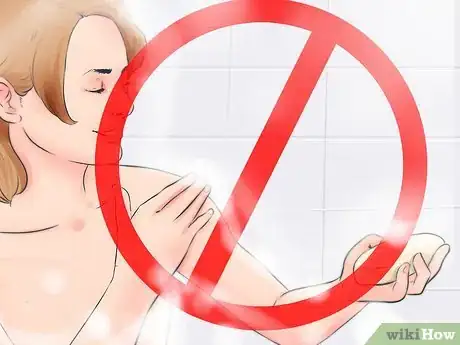
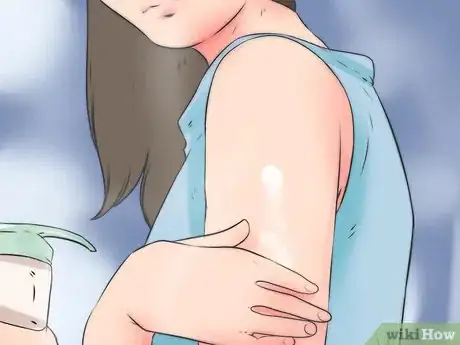
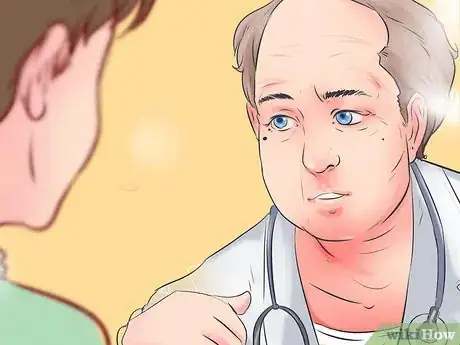
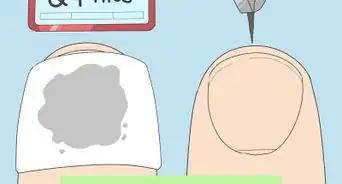
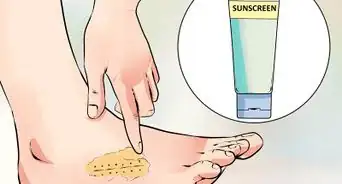

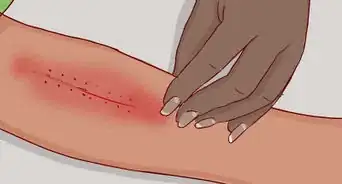
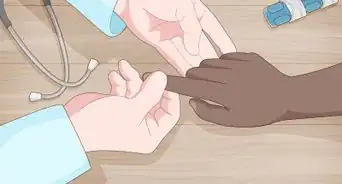

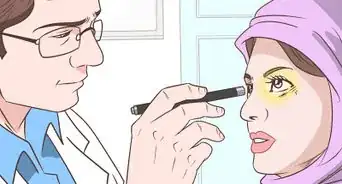
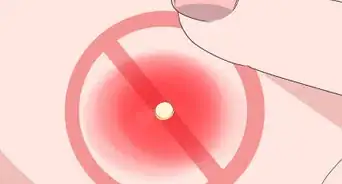
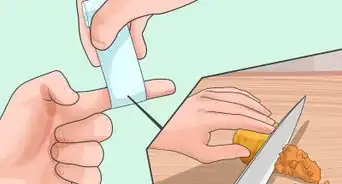
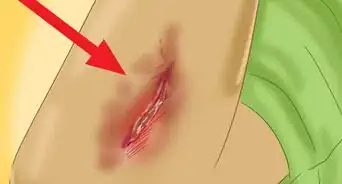
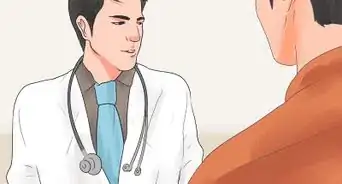
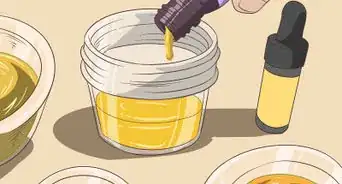






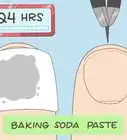
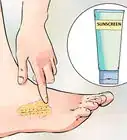
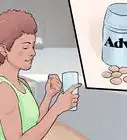
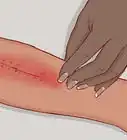



































Medical Disclaimer
The content of this article is not intended to be a substitute for professional medical advice, examination, diagnosis, or treatment. You should always contact your doctor or other qualified healthcare professional before starting, changing, or stopping any kind of health treatment.
Read More...